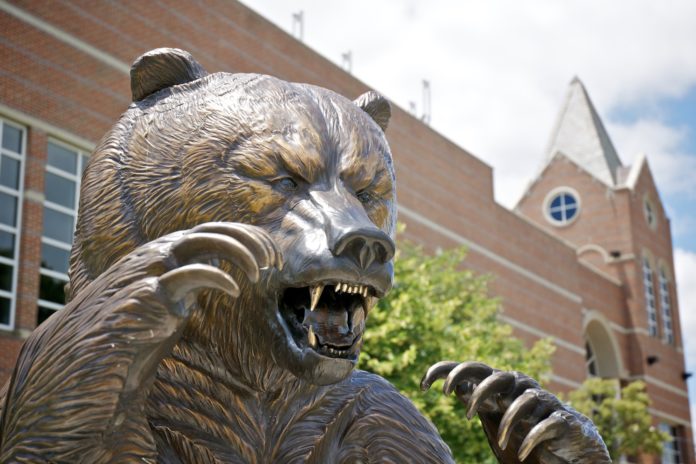Sermon preached by Chanequa Walker-Barnes February 18, 2014, at McAfee School of Theology.
58 Then they dragged [Stephen] out of the city and began to stone him; and the witnesses laid their coats at the feet of a young man named Saul. 59 While they were stoning Stephen, he prayed, “Lord Jesus, receive my spirit.” 60 Then he knelt down and cried out in a loud voice, “Lord, do not hold this sin against them.” When he had said this, he died. 8 And Saul approved of their killing him. That day a severe persecution began against the church in Jerusalem, and all except the apostles were scattered throughout the countryside of Judea and Samaria. (Acts 7:58-8:1 NRSV)
As I read this text, I wonder if anyone watching the trial and execution of Stephen was seized by a feeling of déjà vu. The narrative of Stephen strongly parallels the life and death of Jesus. Like Jesus, Stephen is described as being filled with God's grace and power, doing greater wonders and signs, and having a countenance that shone with God's radiance. Like Jesus, Stephen faced opposition by the religious establishment. He was brought up on false charges and interrogated before the Sanhedrin. His testimony elicited similar reactions of outrage and a sentence of capital punishment from the council. And like Jesus, during the last moments of his life, Stephen entrusted his spirit to God and asked for forgiveness for his executioners.
One more parallel – as in the case of Jesus, the growing community of disciples are conspicuously absent during Stephen's trial and execution. The narrative begins with Stephen as one of seven men of “good standing, full of the Spirit and of wisdom” who were appointed to the task of caring for the growing community of disciples. Yet at the end, none of those disciples seemed to be present. Only three groups of people are mentioned: the Council, the witnesses, and a young man named Saul.
Fast forward 2000 years. On Saturday night, as the jury in the Michael Dunn trial issued its verdict, many Americans felt a similar eerie sense of déjà vu. It was nearly seven months to the day when, on another Saturday night, George Zimmerman was acquitted in the murder of Trayvon Martin.
Again, there were remarkable parallels between the two cases. Both Trayvon Martin and Jordan Davis were 17-year-old African American boys. Their birthdays just a week apart, they lived within 150 miles of each other in cities on Florida's east coastline. In both cases, their killers initiated an altercation, shot and killed them, and then claimed protection under Florida's “Stand Your Ground” law. As the news of Trayvon's death became national headlines, Jordan was one of thousands of Americans who posted a photo of himself in a hoodie in a show of solidarity. He had no idea just how prescient that gesture would be.
The Zimmerman verdict sent many African Americans, especially parents of boys, into a tailspin of grief, anger, and horror. On Saturday night, that grief was compounded. The jury found that Michael Dunn was guilty of attempted murder for firing into a car full of unarmed teenagers because they refused to turn down their “thug music.” But they could not come to an agreement on the primary charge, the first degree murder of Jordan Davis.
We seemed to be stuck in a time warp, a particularly cruel remake of Groundhog Day, in which we are forced to watch over and over again the lives of Black youth snuffed out far too soon for committing only the infractions of youth: listening to obnoxious music too loudly, sneaking out of the house while grounded to buy junk food, whistling at a White woman. Repeatedly we wake up thinking it's a new day (after all, there is a Black president in the White House) only to find that we are still in 1955.
And just as in reading this text, we find ourselves wondering where the disciples are. Because on Sunday, just as on that Sunday in July, many Black Christians who worship in predominantly White congregations or under the leadership of White pastors found the church strangely silent, our grief glossed over with triumphal praise songs, our need for lament stifled by sermons and orders of worship that having been prepared several days earlier were deemed immutable. We blamed ourselves for giving our White brothers and sisters another chance to get it right, rather than going to that Black church down the street like we had been inclined. We found ourselves questioning – we still find ourselves questioning – whether these people are really ready to be our people. Are they ready to walk alongside us, to bear visible witness to our pain? Ultimately, we know that their hearts join with ours. But what we need are visible witnesses.
There were three groups of people – the Council, a young man named Saul, and the witnesses. We already know the position of the Council; they issued the verdict. And Saul's stance is clear too; he was in full agreement with the sentence. But what about those witnesses?
The witnesses to a stoning were not passive bystanders. Ever wonder why they were giving their coats to Saul? It's because they were getting ready to do something. To be a witness at a stoning meant to act. In fact, it meant that they were the first to cast stones, followed by the entire community.
If I might be so bold as to speak for the needs of the many, I believe that what African American Christians need right now is for our sisters and brothers in Christ to do more than stand in silent solidarity. We need to see faith in action. We need to know that as we are feeling persecuted and scattered, that as we are struggling with how to raise our children to be safe and whole in a world that is not safe for them, that you are not simply going on with business as usual. We need to know that your lives are affected. We need to know that you will stand with us even when it's uncomfortable, when it's costly. We need you to cast stones at an unjust system.
We all need to cast stones. Not simply the pebble-sized expressions of outrage that we share on Facebook and Twitter, but the deadly kind, shaped smooth and aimed perfectly to bring down giants. It's been done before. It was the 1955 murder of a 14-year-old Chicago boy that set the U.S. Civil Rights Movement into motion. It was the response to the 1964 slaying of three civil rights workers that helped to pass the Civil Rights Act of 1964 and the Voting Rights Act of 1965. The question for us is how many more lives will it take for us to awaken from our stupor and act?
It is time for us to raise a new cloud of witnesses. This is our clarion call. Awake. Arise. Act.
Dr. Chanequa Walker-Barnes is Professor of Pastoral Care at McAfee School of Theology.









